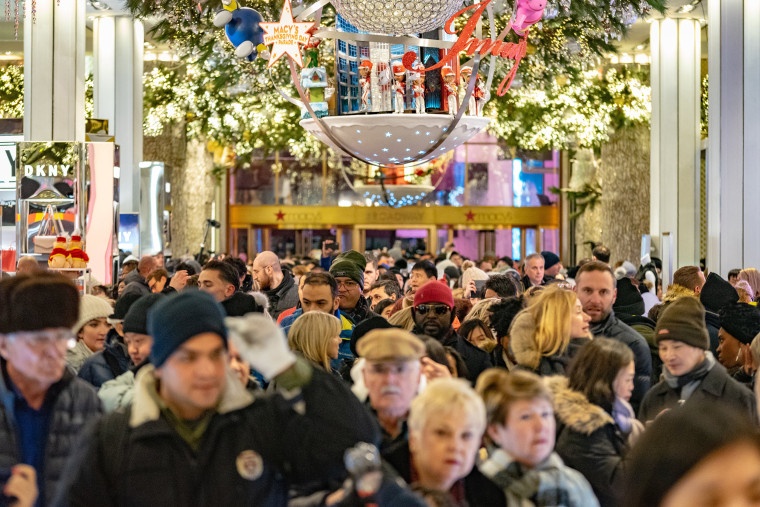Will this year's holiday spending be more like a big shiny bike under the tree, or coal in the stocking?
While financial and political storm clouds amass on the horizon, they aren’t keeping Americans out of stores this holiday season, experts say. But, that could change in the event of a government shutdown or a crisis of consumer confidence, according to economists.
“The backdrop for consumer spending is still very good,” said Mark Zandi, chief economist at Moody’s Analytics. “I do think people are feeling less upbeat than they were a few months ago. Lower stock prices and the political bashing doesn’t help.”
Most Americans take a dim view of Washington cooperation with a divided Congress and scandal-plagued White House, a new Gallup poll found. Only a third of respondents said they expect the President to cooperate with Congressional Democrats — and these results were tallied before Trump’s remarkable on-camera spat with Democratic Senators Chuck Schumer and Nancy Pelosi this week.
A new CNBC survey indicates that this pessimism could be coloring how some people view their economic prospects. The number of Americans who say the economy is good or excellent dropped by eight percentage points this quarter, down to 50 percent — the sharpest drop in the survey’s 12-year history — and the number who think the economy will improve further dropped by 5 percentage points, down to 31 percent.
Overall, the University of Michigan’s Surveys of Consumers finds that both consumer sentiment and outlook on current economic conditions continue to tick up.
“As long as job and income growth remain strong, rising prices and interest rates will not cause substantial cutbacks in spending,” chief economist Richard Curtin said in an analysis accompanying the data.
The Michigan data found that expectations for the future have slipped, although so far, these qualms haven’t been enough to make shoppers close their wallets: Deloitte’s 2018 holiday survey found that nearly 80 percent of Americans will spend at least as much or more as they spent on the holidays last year.
The National Retail Federation said that November sales were up 5 percent over last year, and CNBC found that people plan to spend an average of $1,118 over the holidays. Although this was the first four-figure response in the survey’s history, there was a clear partisan divide: Republicans and Trump supporters logged some of the biggest hikes in their spending plans.
“That probably is fairly understandable, particularly in the context of viewing the political landscape these days as very tribal,” said Mark Hamrick, senior economic analyst at Bankrate.com. A Bankrate survey last month found that 43 percent of Americans believe the political climate in the nation’s capital is the biggest near-term threat to the economy.
“The good news for retailers is we’re pretty deep into the season,” Hamrick said, adding that even the threat of a government shutdown next week probably wouldn’t be enough to derail the spending momentum — provided lawmakers come to a quick resolution.
A prolonged shutdown could make these anxieties more widespread.
“As you get into 2019, whether it’s a lack of confidence in the system broadly or more disruption ahead, I think there probably is more impact on sentiment and behavior with respect to the unprecedented nature of Washington politics these days,” Hamrick said.
And that, in turn, could cause tangible economic harm, Zandi said.
“A good rule of thumb is for every week the government is shut down, it cuts real GDP in that quarter by one-tenth of 1 percent,” he said. “This is clearly a risk and would do damage if it happened and lasted for any length of time.”
